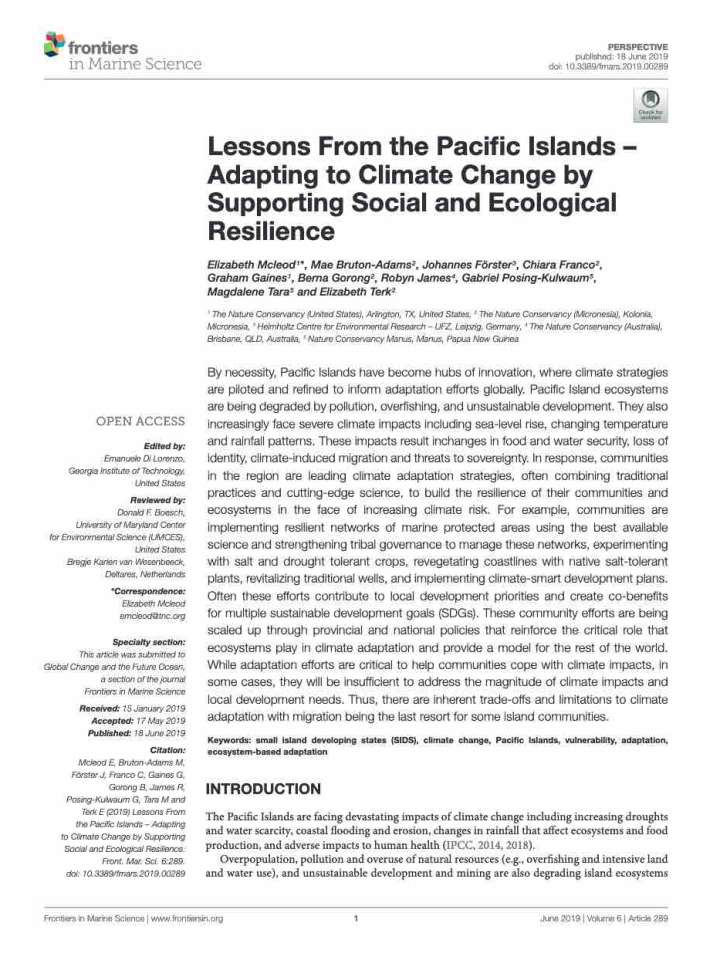Lessons from the Pacific Islands – Adapting to climate change by supporting social and ecological resilience
This paper presents local EBA examples that demonstrate how Pacific Island communities are leading the implementation of sustainable climate solutions and reinforcing the critical role of ecosystems in climate adaptation. The Pacific Islands are facing devastating impacts of climate change including increasing droughts and water scarcity, coastal flooding and erosion, changes in rainfall that affect ecosystems and food production, and adverse impacts to human health. However, ecosystem-based adaptation (EBA) efforts initiated by Pacific Island communities have largely been ignored in the peer-reviewed literature. Ecosystem-based adaptation is defined as combining biodiversity and ecosystem services into an adaptation and development strategy that increases the resilience of ecosystems and communities to climate change through the conservation, restoration, and sustainable management of ecosystems.
Key benefits of EBA have been identified including: securing water resources to help communities cope with drought; food and fisheries provision; and buffering people form natural hazards, erosion, and flooding. The authors include examples that address the primary benefits of EBA including water security, food security, and coastal protection. The authors present examples of EBA projects that were implemented across Micronesia and Melanesia from 2015 to 2018. The authors discuss these EBA activities, identify barriers to implementation, and highlight the importance of supportive national policies and political will to reinforce and scale up these efforts.
Explore further
